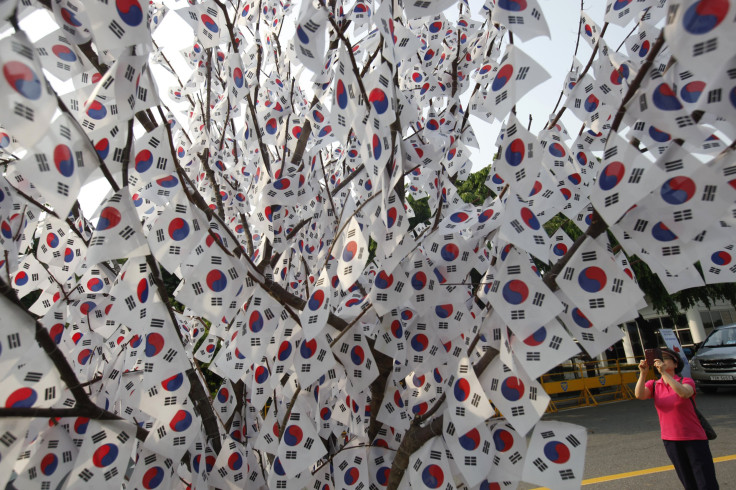Korean American Day 2017: Facts, History, Full Text Of Congress Resolution Establishing National Celebration In The US

The 10th annual Korean American Day was being celebrated nationwide on Friday in observance of the first Korean immigrants arriving to the U.S. on Jan. 13, 1903. Congress unanimously passed a resolution for the national observance in 2005, and since then multiple states have taken steps to celebrate the day.
Maryland Gov. Larry Hogan officially declared Friday Korean American Day in the Mid-Atlantic state by issuing a formal proclamation earlier this week, paying homage to Korean Americans, the Afro American reported. “I cannot overstate the significance of the Korean American community to the State of Maryland,” Hogan said Tuesday. “They contribute so much to our economy and to the rich fabric of our society. I am proud to call myself a ‘hanguk sahwi,’ or ‘son-in-law’ to the people of Korea.”
Republican California Assemblyman Steven S. Choi also introduced a bill last month to officially recognize the day in the Golden State this year and in 2018.
"California’s rich diversity is part of what makes our state great. It’s important we highlight and celebrate the significant role Korean Americans play in our everyday lives,” then-Assemblyman Scott Wilk, a republican, said.
The day first gained some steam with President George W. Bush's official proclamation in 2003 celebrating the centennial of Koreans arriving to the U.S. Two years later, the House and Senate passed a resolution to recognize "the contributions of Korean Americans to the United States and encouraging the celebration of 'Korean American Day'."
The first Korean immigrants arrived to the shores of Hawaii after having set sail in December 1902, just about 20 years after the U.S. and Korea signed a peace treaty.
The full text of the 2005 resolution as established by the 109th Congress on Dec. 16, 2005, follows:
S. RES. 283
Recognizing the contributions of Korean Americans to the United States and encouraging the celebration of ‘‘Korean American Day’’
Whereas on January 13, 1903, the arrival of 102 pioneer immigrants to the United States initiated the first chapter of Korean immigration to the United States;
Whereas members of the early Korean American community served with distinction in the Armed Forces of the United States during World War I, World War II, and the conflict in Korea;
Whereas in the early 1950s, thousands of Koreans, fleeing from war, poverty, and desolation, came to the United States seeking opportunities;
Whereas Korean Americans, like waves of immigrants to the United States before them, have taken root and thrived as a result of strong family ties, robust community support, and countless hours of hard work;
Whereas the contributions of Korean Americans to the United States include the invention of the first beating heart operation for coronary artery heart disease, development of the nectarine, a 4-time Olympic gold medalist, and achievements in engineering, architecture, medicine, acting, singing, sculpture, and writing;
Whereas Korean Americans play a crucial role in maintaining the strength and vitality of the United States-Korean partnership;
Whereas the centennial year of 2003 marked an important milestone in the now more than 100-year history of Korean immigration; and
Whereas the Centennial Committees of Korean Immigration and Korean Americans have designated January 13th of each year as ‘‘Korean American Day’’ to memorialize the more than 100-year journey of Korean Americans in the United States: Now, therefore, be it
Resolved, That the Senate—
(1) supports the goals and ideals of a ‘‘Korean American Day’’;
(2) commemorates the 103rd anniversary of the arrival of the first Korean immigrants to the United States; and
(3) encourages the people of the United States to—
(A) share in such commemoration in order to greater appreciate the valuable contributions Korean Americans have made to the United States; and
(B) to observe ‘‘Korean American Day’’ with appropriate programs, ceremonies, and activities.
© Copyright IBTimes 2025. All rights reserved.






















